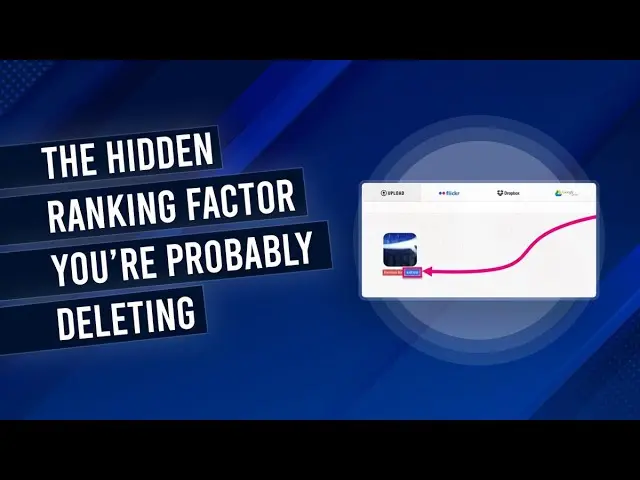
This article explores an experiment testing the influence of hidden EXIF data on SEO rankings. The results indicate that sites with embedded EXIF data consistently ranked higher than those using traditional image SEO techniques or no optimization at all. This suggests that hidden EXIF data may be a significant factor in search engine rankings, despite common practices that strip this data away.
In the ever-evolving world of search engine optimization (SEO), understanding the factors that influence rankings is crucial for website owners and marketers. Recently, an intriguing experiment was conducted to test a hidden ranking signal that has largely gone unnoticed: the impact of embedded image EXIF data on SEO rankings. This blog post delves into the findings of this experiment and its implications for image optimization strategies.
Background of the Experiment
The experiment was initiated to investigate whether hidden image EXIF data affects search engine rankings. The researcher built a series of test sites to explore this question, while also uncovering some surprising insights along the way.
Initial Observations
- Content Indexing: Contrary to a tweet from Gary at Google claiming that low-quality and spammy content is no longer indexed, the researcher found that Google indexed all test sites, even those with duplicate, low-quality content.
- Image SEO Advice: John from Google provided image SEO recommendations, emphasizing the importance of high-quality images, descriptive alt text, and optimized filenames. However, he did not mention the potential impact of hidden EXIF data on rankings.
The Experiment Setup
To test the influence of EXIF data, the researcher created a target long-tail keyword that returned zero results in Google searches. The following steps were taken:
- Domain Registration: Three 10-character domains were registered, each returning no search results when searched individually.
- Site Creation: Three identical sites were built, each containing duplicate gibberish content. The only differences were in the homepage title, meta description, and a unique bullet point, none of which included the target keyword.
- Image Implementation: Three unique images were created that Google did not recognize, with different optimization strategies applied:
- Site 1: No optimization; the target keyword only appeared in the text before the image.
- Site 2: Traditional image SEO techniques applied, including optimized filenames and alt text.
- Site 3: Same as Site 2, but with the addition of embedded EXIF data targeting the test keyword.
Results of the Experiment
After running the experiment for a year, the results were revealing:
- Ranking Outcomes: The site with embedded EXIF data consistently ranked first, the site using traditional image SEO techniques ranked second, and the site with no optimization ranked third.
- Image Credits: The image with hidden EXIF data included an extra image credits option that featured the target keyword, while the other images lacked this option.
These results suggested a significant correlation between the presence of hidden EXIF data and improved search rankings.
Second Batch of Test Sites
Encouraged by the initial findings, the researcher set up a second batch of test sites under the same conditions, but this time each site featured unique gibberish content. The same process was followed:
- Site Creation: Three new sites were built with the same optimization strategies as before.
- Ranking Results: Once again, the site with embedded EXIF data ranked first, followed by the site with traditional image SEO techniques in second, and the site with no optimization in third. This mirrored the results of the first batch of test sites.
Conclusion: The Role of EXIF Data in SEO
The experiment clearly indicated that hidden EXIF data does influence search engine rankings. However, a significant challenge arises from traditional image optimization practices. Many tools and plugins, such as WP Smush, Shortpixel, or Imagify, often strip away this valuable hidden data in their efforts to compress images for faster loading times.
Recommendations for Website Owners
- Review Image Optimization Practices: Website owners should reassess their image optimization strategies to ensure they are not inadvertently removing hidden EXIF data.
- Consider Adding EXIF Data: Adding targeted EXIF data to images could provide a competitive edge in search rankings.
- Consider using original photography whenever possible: Original photography enhances SEO by improving user experience, increasing page relevance, building brand authority, and driving social media engagement. High-quality images improve page speed and reduce bounce rates. Keyword-rich image names and alt text help search engines understand and rank your content. Unique visuals establish your brand identity and boost credibility. Shareable images increase social media reach and drive traffic back to your website. Google Image search, and other image search platforms are still a great way to get impressions and clicks as well.
For those interested in learning how to add targeted EXIF data to images, further resources are available to guide you through the process.
In summary, the findings from this experiment highlight the importance of considering hidden EXIF data as a potential ranking factor in SEO strategies. As the digital landscape continues to evolve, staying informed about all aspects of optimization is essential for success in search engine rankings.
Let's Do This Together.
Join over 10,000 subscribers that receive our digital newsletter, full of actionable news and information you can apply to your business. Sign up today!
Sharing Is Caring.
Share this post with all of your contacts by using the social sharing links below.
Related Content.
To Go Fast, Go Alone. To Go Far, Go Together.
Are Your Ready To Take The Next Step? Drop us a line today for a free consultation.
Get In Touch
Apache Interactive
Kingwood Texas
832.971.4905
Connect@ApacheInteractive.com
We Love Referrals
Privacy and Security
Who We Are And What We Do
Apache Interactive is a digital marketing agency specializing in technical SEO, online advertising (PPC), content marketing, and web design and development services.
We work directly with client companies, and also partner with other marketing and branding agencies that want to have a digital marketing expert on call to assist with challenging projects.
Stay Connected
The Internet is a big place and we love to hang out on all of the major social networks.
Follow our accounts and never miss any of our photos, videos, or other digital marketing mayhem.





